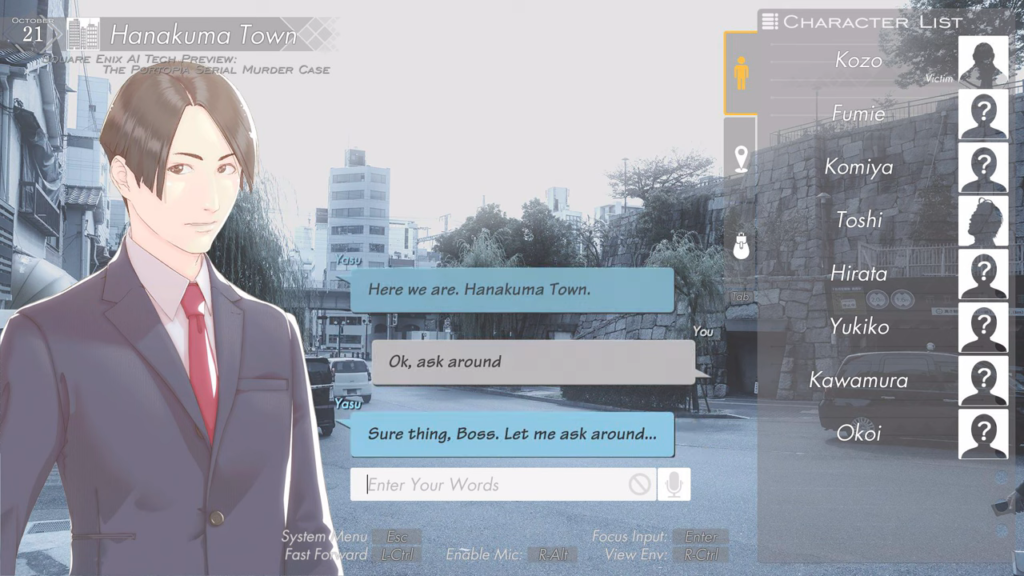On April 24th, you’ll be able to download Square Enix’s new “AI tech preview” for free on Steam. A revival of The Portopia Serial Murder Case after its original debut on the NEC PC-6001 in 1983. The game is one of the first developed by Dragon Quest series luminary Yuji Horii, inspired by rising popularity of text adventure games and a dearth of them in the Japanese market at the time.
The original concept was to expand the possibilities of the genre by having the story play out through entering commands and receiving answers to those commands. While Horii’s original plan was to create a robust enough dialogue system via an AI language algorithm, the limitations of technology at the time could only be coaxed through entering key terms from which the computer would respond. The game would progress in a non-linear fashion, with as little as 20% of the game’s writing involving the main story. It sold well after its release in Japan and several ports were produced, but its legacy remains as one of the earliest definition of what we now know as the visual novel genre.
Now, using AI, Square Enix hopes to renew the project along the lines of Horii’s original intention: to use natural language to create a genuine interaction between human and computers to solve a serial murder mystery.
Check out the trailer and project overview from Square Enix below.
“This software is an educational demonstration of Natural Language Processing (NLP), an AI technology, as applied to the text adventure game “The Portopia Serial Murder Case” (created by Yuji Horii and first published in Japan in 1983).
At the turn of the 1980s, most PC adventure games were played using only the keyboard. In those days, adventure games didn’t use action menus like more modern games, but simply presented the player with a command line where they could freely input text to decide the actions that characters would take and proceed through the story.
Free text input systems like these allowed players to feel a great deal of freedom. However, they did come with one common source of frustration: players knowing what action they wanted to perform but being unable to do so because they could not find the right wording. This problem was caused by the limitations of PC performance and NLP technology of the time.
40 years have passed since then, and PC performance has drastically improved, as have the capabilities of NLP technology. Using “The Portopia Serial Murder Case” as a test case, we’d like to show you the capabilities of modern NLP and the impact it can have on adventure games, as well as deepen your understanding of NLP technologies.”
Natural Language Processing is a technology that allows computers to glean meaning from natural language—the kind of language that we use in daily communication. Deep learning conducted on a large set of text data makes it possible for the system to understand complex text input (NLU) and to generate responses comparable to those written by human beings (NLG).
Natural Language Understanding is an area of NLP research that aims to make computers correctly understand natural language, where the meaning can often be ambiguous. In this tech preview, NLU is used to help the junior detective understand the player’s instructions.
Speech-to-Text, or Automatic Speech Recognition (ASR), makes it possible to convert voice input to written text. Using this technology, players can give instructions using their own voices rather than a keyboard.
(Please note that a CUDA-capable GPU and a large amount of VRAM are required for a satisfactory experience.)




Recent Comments